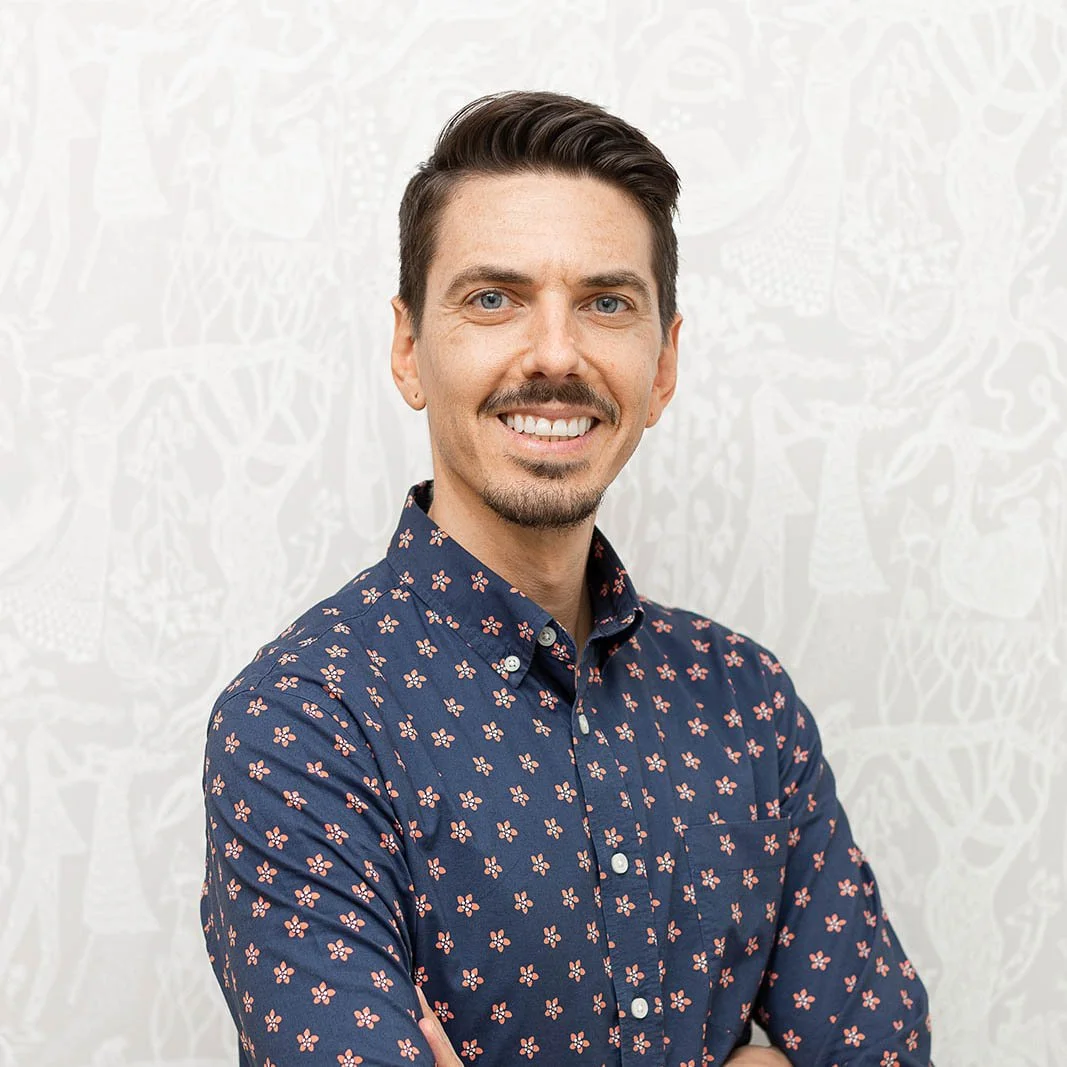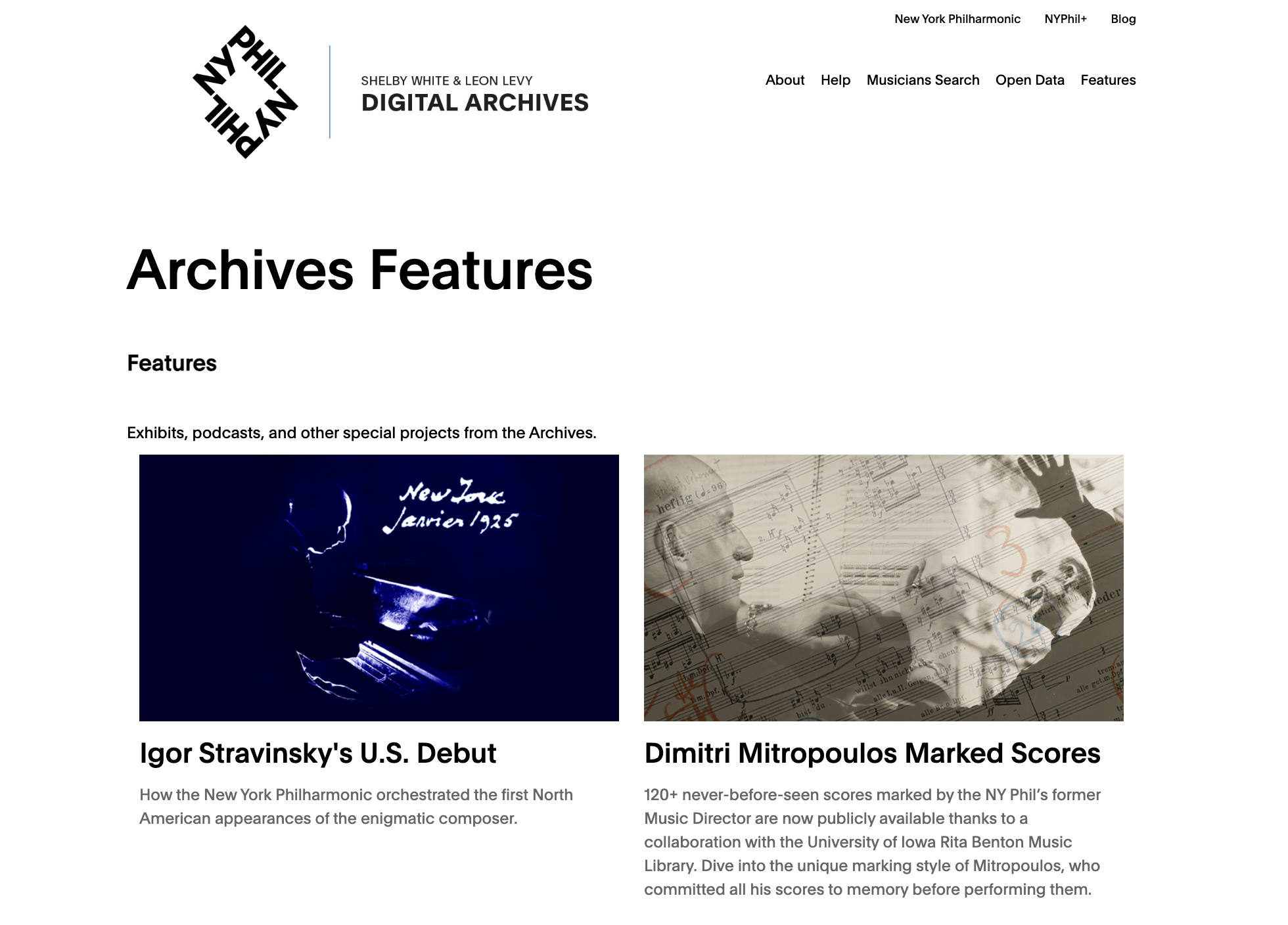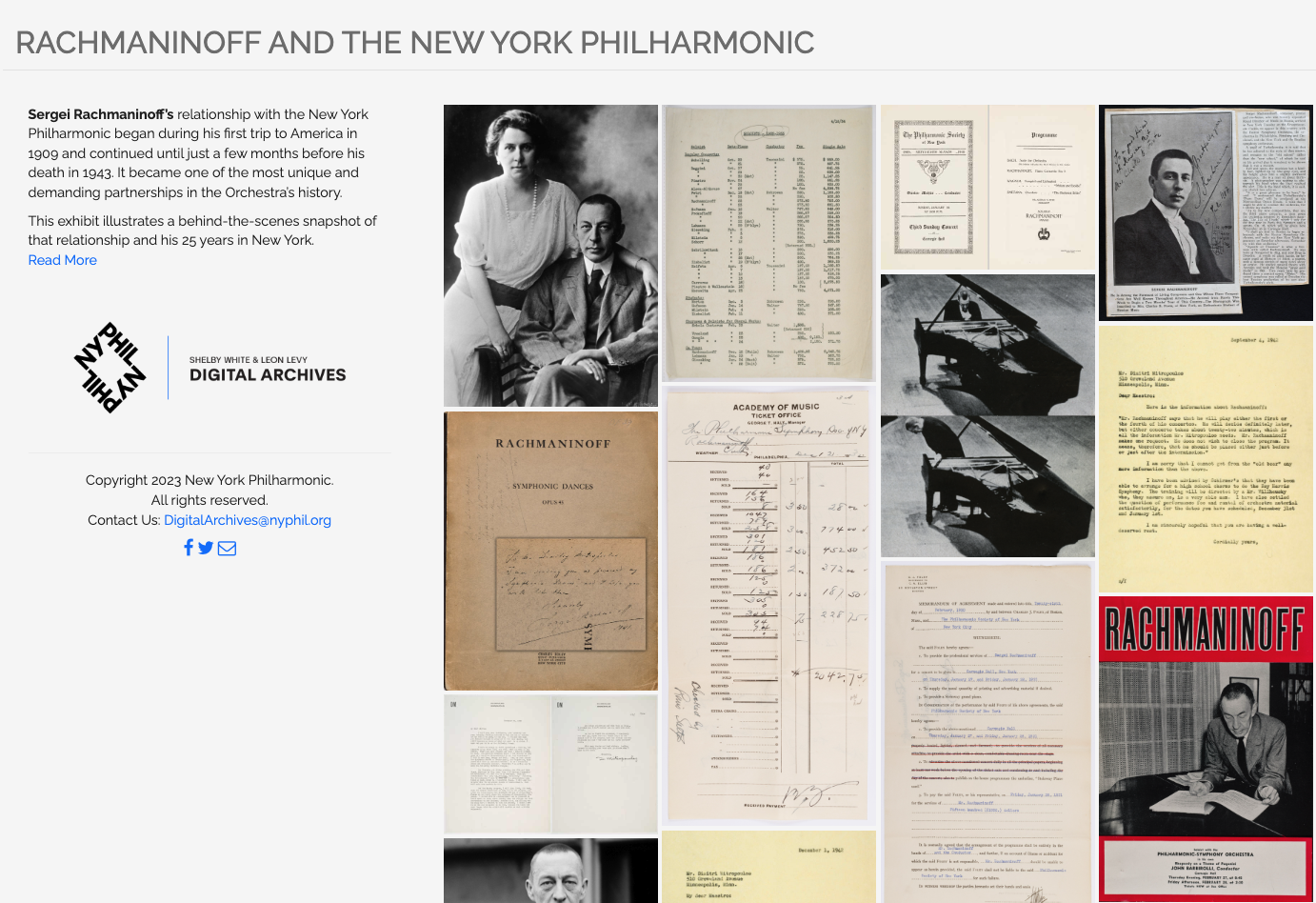AN INTERVIEW WITH:
Bill Levay
Digital Archivist at the New York Philharmonic
Was there something that initially sparked your interest in archival science? Did you know about the field or was it something you stumbled upon?
It was more of a stumbling upon. I was in graduate school the first time around at NYU for an interdisciplinary humanities degree, and I happened to get a job in Special Collections at the NYU library. That was my first exposure to archives, rare books, etc. So that really sparked my interest, and I kept going in that direction for a while. Later on, I had to decide whether to go back to graduate school for a different degree, and at that time, I chose not to. I worked in a different area for several years. Eventually, I had an opportunity to make a change, so I went back to school and pursued the library degree.
I saw you have a wide range of different archiving jobs. From the Associated Press, to Gap, to historical societies, did you find a lot of large differences between those sectors or were there a lot of similarities you didn’t expect?
Definitely similarities. Part of that was simply as a new graduate with a library degree, just trying to find jobs. For a while, it was a part-time job here, add a part-time job there to cobble together a full-time work schedule. That was just the reality of the job market at the time. With the Associated Press, that was earlier in my career, so I had a bit of experience in a corporate archive setting, which fit well with the gig economy.
I tried for a while to get jobs at academic libraries to get back to my NYU library days, but that proved to be difficult to land. Broadly, early on, I knew I was going to focus on digital stuff, and my goal was always something music-related, although that didn't happen until later. But there are similarities, like working with spreadsheets, databases, which everyone has and always needs work on—whether it's keeping them up to date or migrating them from one format to another. That is definitely a constant in any kind of repository, regardless of the collecting focus.
You mentioned you were always interested in doing something music-related. What about digital archives spoke to you and made it a more interesting route to pursue? Was it particularly because of your interest in music or something else?
I think it was my facility with technology, being able to pick up new software quickly, and diving deep into tools like Excel. That was partly a driving force, saying, "Okay, I like archives, but I can also focus on this subset that is now becoming synonymous with archives."
“Nowadays, is there a significant difference between being a digital archivist and just an archivist? Not so much anymore.”
Ten years ago, that might have been a meaningful distinction. Now, I work with two other archivists in my department, and we're all digital archivists because we're constantly dealing with digital materials. It happens to be my day-to-day focus.
What is an average day like as a Digital Archivist at the NY Philharmonic?
c/o the New York Philharmonic Digital Archives
https://archives.nyphil.org/index.php/features
I would say that more recently there have been more similarities in my day to day. Before that, it was often very project based, focusing on things like digitization projects, which would finish, and then we'd move on to something else. And then, of course, there are background tasks that you are always working on. For me, that has always been maintaining the public-facing Digital Archives at archives.nyphil.org. This was long running and well established before I started working at the NY Phil, thanks to the work by my predecessors who digitized a huge bulk of our physical collection and then also created an online portal where the public can access it. Being the custodian of that platform is one of my primary responsibilities.
Now, that archive is also the main driver of our internally facing digital asset management system. We rolled it out, and we have people in different departments using it regularly. We have our archival material in there, and we’re still in the process of migrating content into that new system. That has become day-to-day for me, the management of that software and helping users inside the organization, creating documentation, and best practices like procedures and workflows and sharing those best practices internally. Simultaneously, we’re building the groundwork so that this same system can be open to the public. By swapping the existing system we have now, which is a custom-built system that requires many different servers to work together that we have to internally maintain, to a new paid system where a lot of that technical management is offloaded to the software vendor. Then, we can really focus on being users and making the user experience for both internal staff and, in the next phase, opening it up to the public. That’s currently my main focus and, of course, we still have digitization projects and management of donations that require digitization as part of ongoing work.
Do you have any favorite projects you’ve worked on? Something the most interesting or fulfilling that you can talk about?
That’s a good question. The effort that I was just discussing earlier to migrate our existing digital archives to this new platform is part of an ongoing grant project funded by the National Endowment for the Humanities. This is a digital infrastructure grant that we are at the halfway point of, and it was relatively early on in my tenure here at the NY Phil that we applied for that. I hadn’t had a ton of grant writing experience before that so participating in the grant writing process was a big learning experience for me. Project managing to ensure we’re hitting our targets and reporting out to the federal government every year on how we spend the money and if anything shifted because, of course, things change. It’s a five-year grant, and while changes are expected, it’s important to keep the same goals in mind.
Another piece of the project is improving our preservation practices when it comes to digital preservation. We already have backups, but there's always room for improvements like more closely monitoring digital files to ensure their integrity over time and making sure there’s no loss of data from human error, such as accidental file deletion. This project is a big effort to update our systems, establish better procedures, and create clear policies about what kind of digital material we are saving for the long-term. Archives are rarely getting boxes of files from different departments around the organization anymore, people are doing more work within a Microsoft 365 environment. So, we need to make sure we are saving what’s important and also being clear about what we are not saving.
Something we’ve touched on in our classes this term is that a huge part of the job is deciding what NOT to keep, which seems equally as difficult. That’s a great point. Thank you for bringing that up.
Are there any cataloging standards, databases, or metadata tools that you use the most as a digital archivist?
I would say that, in general, a huge tool that I use everyday – and which I'm grateful I took a class on in library school – is Python scripting. I do a lot of coding in my job because you’re typically dealing with hundreds or thousands of things at once that you’re trying to do something with. Just yesterday, we had around 20,000 JPEGs that represent digitized pages that haven't been made public yet. We needed to quickly comb through them to make sure there weren't any social security numbers or other sensitive information.
So, what I did was quickly write a script. I listed the box IDs, and told it to grab all JPEGs from those boxes, and then run them through OCR, and put all the results into a folder. Today, it was completed. I let it run overnight. I could go in and I could see across the entire set of seven boxes of documents to check for specific formats, like [social security numbers] three digits-two digits-dash four digits. This is just one example from yesterday and today.
I'm always using these tools. Now, with ChatGPT, which is excellent at coding, I can take my knowledge of Python and say, "Okay, I think I know how to do this in Python, but let me get ChatGPT's help on that." It can give me really nice code that usually works on the first try. Sometimes it doesn't, but I can troubleshoot a bit.
“It’s been interesting to play around with this technology, not seeing it as something that’s going to replace my job, but something that I can use as a tool to help me do my job better.”
Wow, that's a really interesting point. I feel like there's a lot of conversation about AI as something that's going to overtake jobs, so it's cool that you're already using it in a way that's helpful instead of seeing it as detrimental.
I just have one last question. If someone asks you what an archivist is, and why their work is important, what would you tell them?
Yeah, that's a great question. I would say an archivist—speaking specifically within an institutional archive—is important not just to help people in the organization locate old records that might be relevant to what they’re working on, but also to have the public engage with the long history of our organization. They can see how our history is relevant to what, in our case, the orchestra is doing tonight on stage. We pull threads together and say here is what we were doing in 1890, in 1940, and show how it’s still relevant today.
c/o the New York Philharmonic Digital Archives
https://archives.nyphil.org/rachmaninoff/



